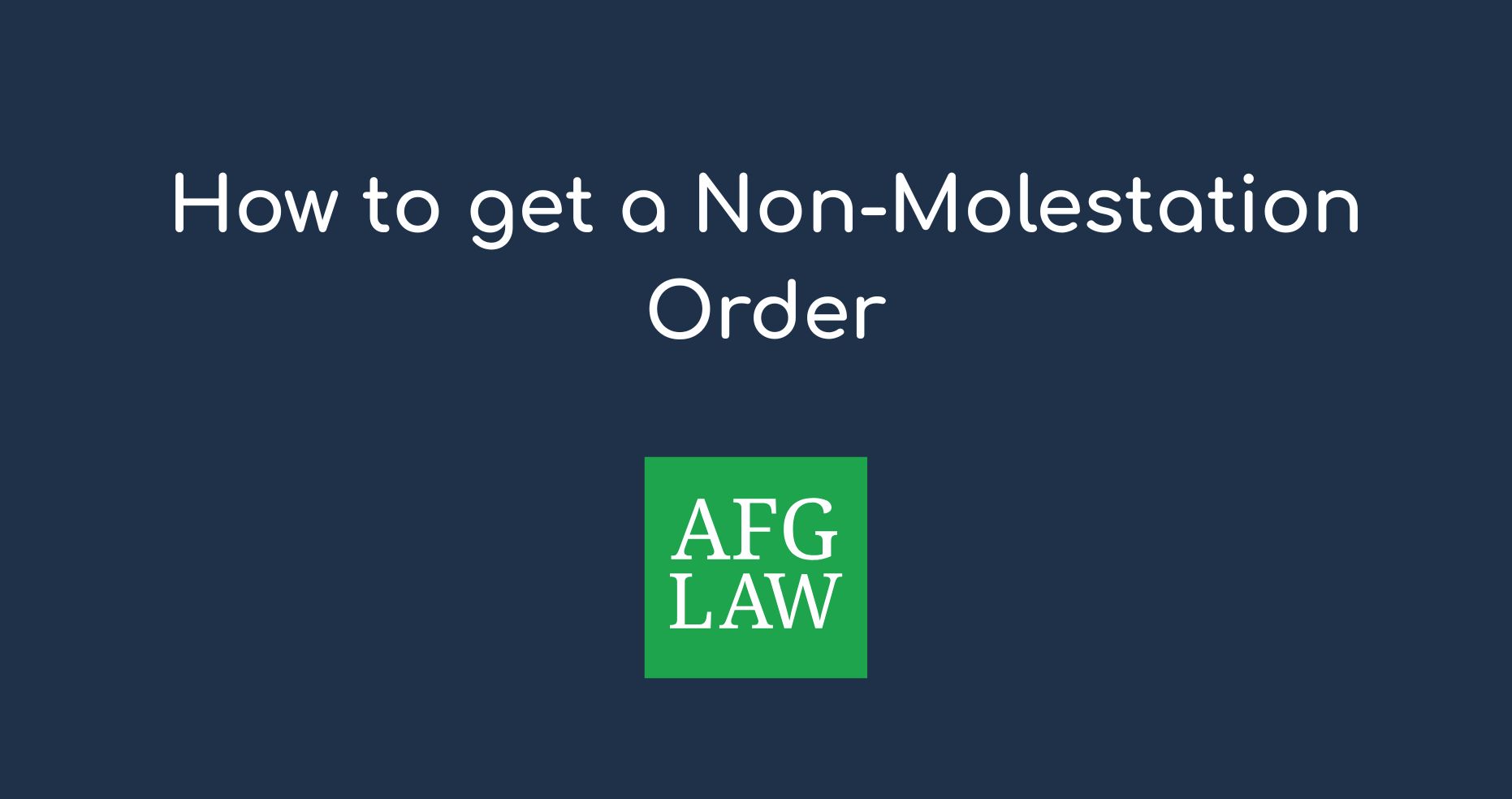A Non-Molestation Orderis a type of injunction issued under the Family Law Act 1996. These types of court orders are designed to protect individuals and children from harassment or abuse by someone with whom they have a close personal relationship.
At AFG Law, we understand how daunting it can feel to take legal action. Our short guide explains how to get a non-molestation order to help ensure your safety.
What is a Non-Molestation Order?
A Non-Molestation Order is issued by the family court and prohibits an individual from using or threatening violence, harassing, or intimidating the applicant or any relevant children. The purpose is to ensure the safety and wellbeing of the applicant and to prevent further harm.
Breaching a Non-Molestation Order is a criminal offence, punishable by up to five years in prison.
Who Can Apply for a Non-Molestation Order?
You can apply for a Non-Molestation Order if you are an “associated person” with the respondent. This includes:
- Spouses or ex-spouses
- Civil partners or former civil partners
- Fiancés or ex-fiancés
- Individuals who are or were cohabiting
- Those who have a child together
- Relatives (e.g. parents, siblings)
- Individuals who have had an intimate personal relationship of significant duration
Grounds for Applying
You can apply for this type of order if you are experiencing:
- Physical abuse
- Verbal or emotional abuse
- Threats of violence
- Harassment or stalking
- Coercive control
- Any behaviour that causes distress or alarm
You do not need to have reported the abuse to the police before applying, although evidence such as texts, emails, or witness statements can support your case.
How to Get a Non-Molestation Order – The Application Process
Complete the Forms
To obtain a Non-Molestation Order, you will need to complete the following:
- Form FL401: This is the main application form.
- A witness statement: Your witness statement should detail the incidents of abuse, how they have affected you, and why you need protection.
These forms can be submitted online or in person at your local family court. You can complete the forms yourself; however, we would recommend using a family law solicitor to help ensure everything is completed correctly.
Emergency or Without Notice Application (Optional)
If you are at immediate risk, you can ask for a “without notice” (ex parte) order. This means the respondent will not be informed until after the order is made.
A judge can grant this interim order on the same day, offering you immediate protection.
Serve the Order
Once the court has made the order, it must be personally served on the respondent. A court bailiff or a professional process server can do this.
You must also provide proof to the court that the respondent has received the order.
The Court Hearing
You will be required to attend a court hearing, which may take place:
- On the same day, if your application is urgent
- Within a few days, for non-urgent matters
At the hearing, the judge will review the evidence you have submitted and decide whether to issue the order. If your application was made without notice to the respondent, a second hearing will typically be arranged to give them an opportunity to attend and present their response.
After the Order is Granted
The order will prohibit the respondent from specified behaviours and, in some cases, from contacting you altogether or coming near your home, workplace, or your child’s school.
Breaching the order is a criminal offence. You should call the police immediately if the respondent violates the order. They have the power to arrest and prosecute the offender without needing to return to family court.
Do you Need a Solicitor to Obtain a Non-Molestation Order?
You can apply for a Non-Molestation Order yourself, but many people find it helpful to seek legal advice from an experienced family law solicitor. Legal aid may be available for victims of domestic abuse, subject to evidence and financial eligibility.
A family law solicitor can help you gather evidence, complete forms, and represent you at court.
How can AFG Law help?
Our domestic abuse solicitors are dedicated to helping our clients feel safe and heard. We understand that taking the step to seek help with a non-molestation order takes courage, and we will support you every step of the way. We can also assist those seeking assistance with occupation orders and domestic abuse protection orders.
If you have any further queries on how to get a Non-Molestation Order, or if you require legal advice on domestic abuse, please call 01204 920 100 to speak with AFG Law’s expert family and domestic violence team, who can support you in all aspects of family law. Alternatively, you can email one of the team members at familysolicitor@afglaw.co.uk.
